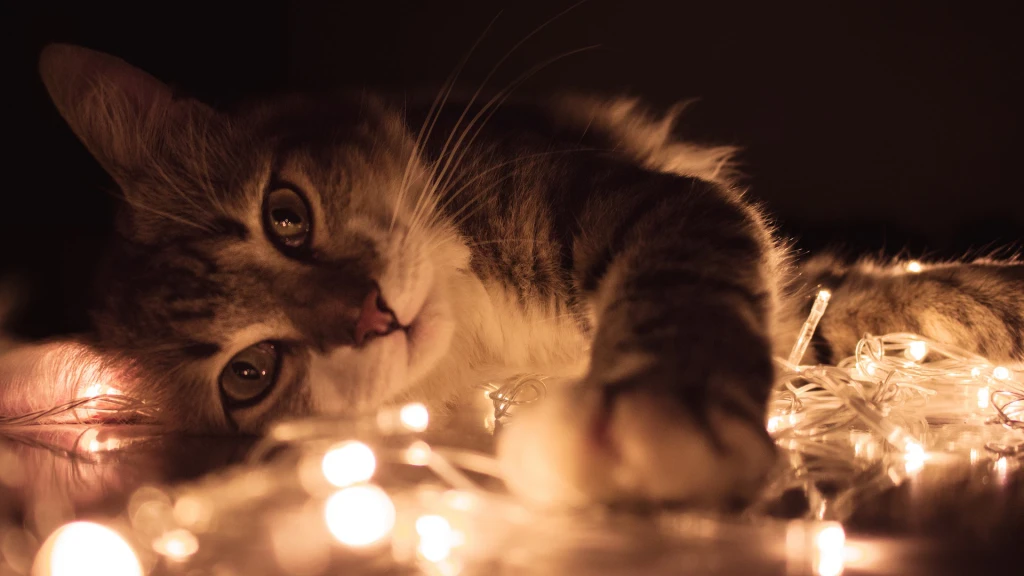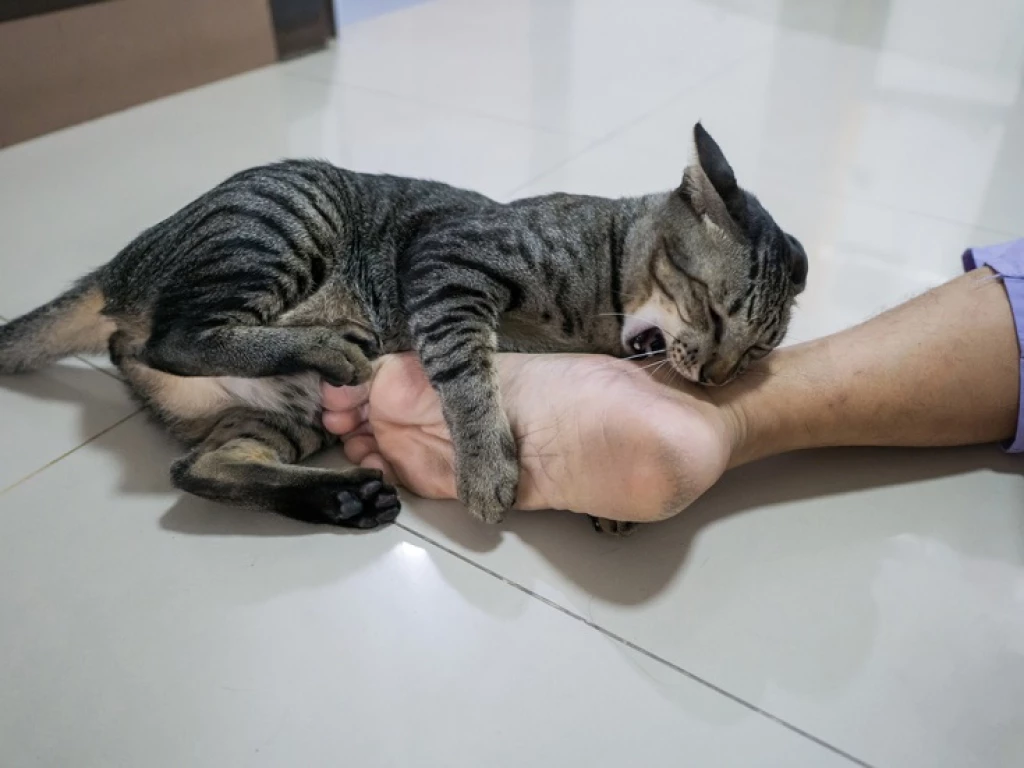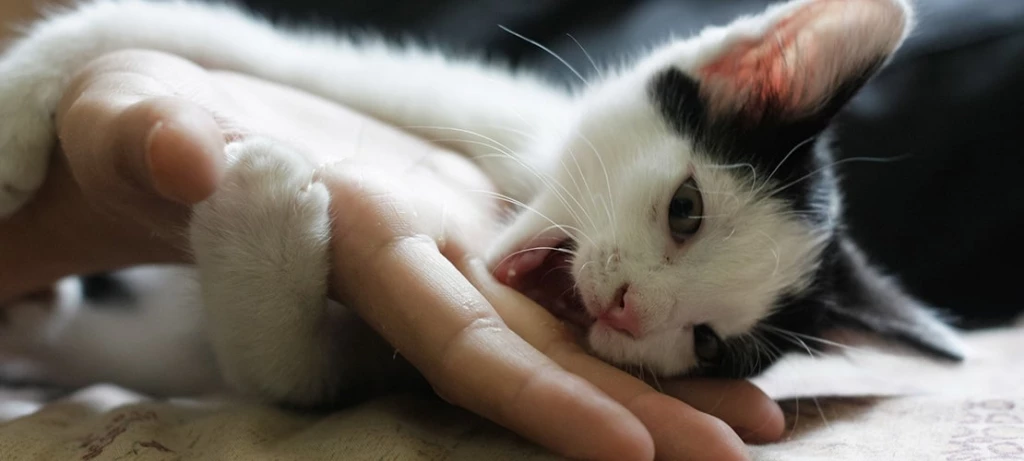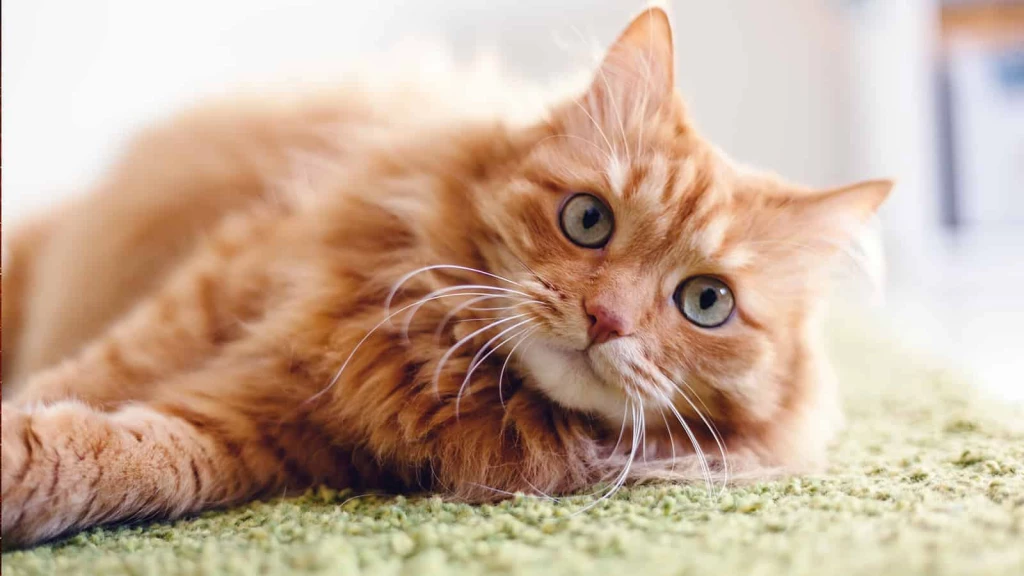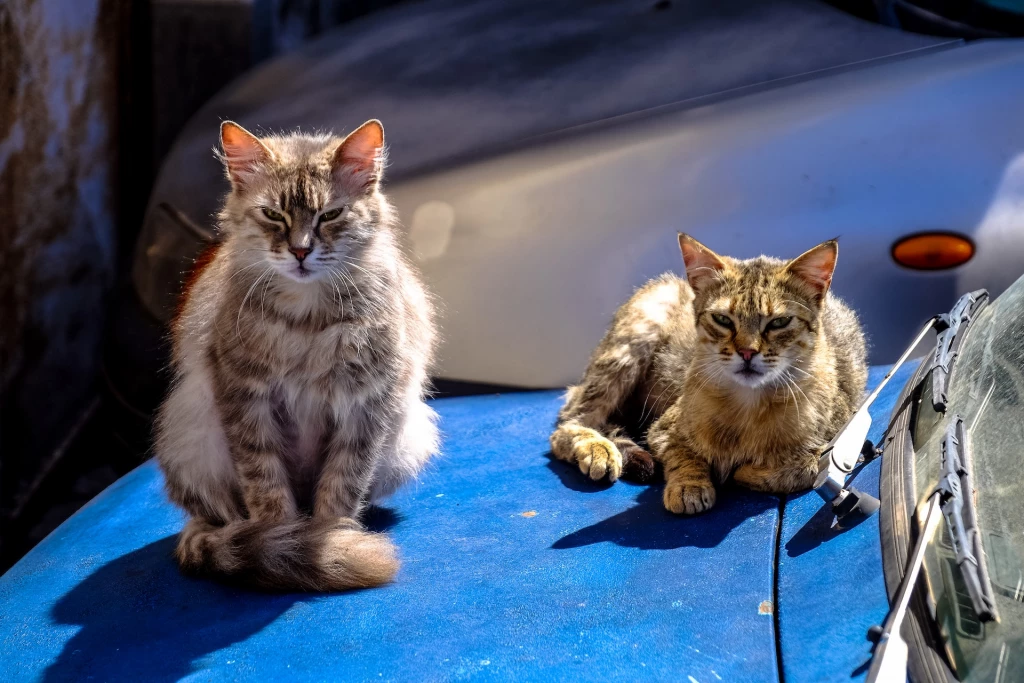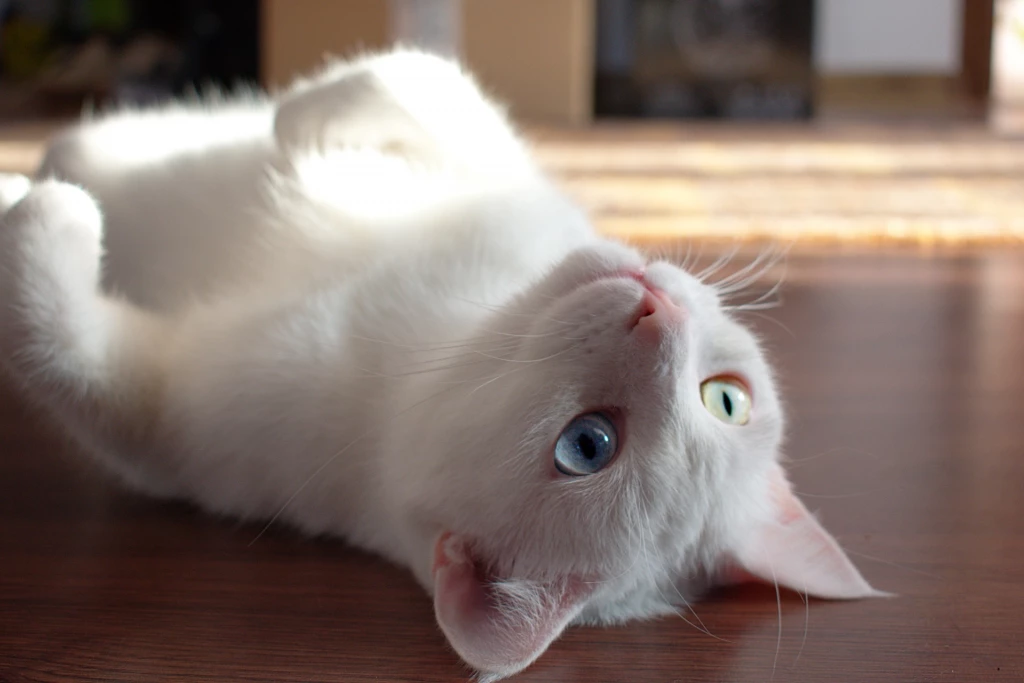Have you ever woken up in the middle of the night to find your cat humping your leg? It's a behavior that can be both confusing and uncomfortable, but it's actually quite common in cats. While it may seem strange or even alarming, there are several reasons why your furry friend might be engaging in this behavior. In this article, we'll explore the possible reasons behind why cats hump legs, whether it's normal or cause for concern, and what you can do to address the behavior if necessary. So, let's get started!
Why Do Cats Hump Legs? (6 Common Reasons)
You may have noticed that your cat sometimes rubs its body against your leg at night, making a rhythmic motion that resembles humping. This behavior may seem odd or even funny to you, but it actually has some explanations behind it. Here are six common reasons why your cat humps your leg at night:
Sexual Behavior
One of the reasons why cats may hump legs is related to sexual behavior. Unneutered cats, both male and female, may hump as a way of expressing sexual interest or frustration. This behavior is more common in cats that have not been spayed or neutered, as the lack of sex hormones can lead to sexual frustration. Male cats may also hump as a way of marking their territory or establishing dominance over other cats or people.
While humping behavior related to sexual behavior can be concerning or uncomfortable for cat owners, spaying or neutering your cat can help reduce or eliminate the behavior. Additionally, providing alternative outlets for your cat's energy, such as toys or playtime, can help redirect their attention and provide a positive outlet for their behavior. If you have concerns about your cat's behavior, consulting with your veterinarian is always a good idea.
Playfulness
Another reason why cats may hump legs is related to playfulness. Cats are known for their playful and curious nature, and sometimes humping behavior can be a form of play or exploration. This is particularly true for younger cats and kittens who may be more prone to experimenting with different behaviors.
Humping behavior related to playfulness is usually not a cause for concern unless it becomes excessive or is accompanied by other problematic behaviors. In most cases, providing your cat with plenty of toys and playtime can help redirect their energy and prevent humping behavior.
It's important to note that some cats may also hump as a way of showing affection or seeking attention. If your cat is humping your leg in a non-aggressive manner, it may simply be a sign that they want to be close to you or are seeking affection. In these cases, providing positive reinforcement for appropriate behaviors and redirecting your cat's attention can be effective strategies for managing the behavior.
Dominance
Another reason why cats may hump legs is related to dominance. Cats, particularly males, may hump as a way of establishing their dominance over other cats or people. This behavior is more common in unneutered male cats and can be a way for them to mark their territory and assert their dominance.
If your cat is humping your leg as a way of asserting dominance, it's important to discourage the behavior and provide alternative outlets for their energy. Punishment or negative reinforcement is not an effective way to discourage humping behavior in cats, as it can cause stress and anxiety and may even lead to more problematic behaviors.
Instead, providing positive reinforcement for appropriate behaviors and redirecting your cat's attention can be effective strategies for managing the behavior. This can include providing plenty of toys, playtime, and a comfortable environment. If you have concerns about your cat's behavior, consulting with your veterinarian is always a good idea.
Stress Or Anxiety
Stress or anxiety can also be a reason why cats may hump legs. In some cases, humping behavior can be a way for cats to cope with stress or anxiety, particularly if they are feeling overwhelmed or insecure in their environment. Cats may also hump as a way of self-soothing, similar to how they may knead or suckle on blankets or pillows.
If your cat is humping your leg as a way of coping with stress or anxiety, it's important to address the underlying cause of their behavior. This may involve providing a comfortable and secure environment, providing plenty of toys and playtime, and spending more time interacting with your cat. If the behavior persists, consulting with your veterinarian or a veterinary behaviorist may be necessary to develop a comprehensive management plan.
It's important to note that humping behavior related to stress or anxiety is usually not a cause for concern unless it becomes excessive or is accompanied by other problematic behaviors. Providing positive reinforcement for appropriate behaviors and redirecting your cat's attention can be effective strategies for managing the behavior.
Medical issues
Your cat may have an underlying medical condition that causes it to hump your leg at night. This could be due to hormonal imbalances, urinary tract infections, skin allergies, parasites, or neurological problems. If you notice any other symptoms such as excessive licking, scratching, biting, urinating outside the litter box, or aggression, you should take your cat to the vet for a check-up.
Habit
Your cat may have developed a habit of humping your leg at night because it has been doing it for a long time and finds it comforting. This could be due to early weaning from its mother, lack of socialization with other cats, or reinforcement from you (such as petting or laughing). Humping can become an ingrained behavior that is hard to break.
Is It Normal?
While humping behavior in cats is not uncommon, it can be concerning or uncomfortable for cat owners. Here are some things to consider when determining whether the behavior is normal or not:
- Frequency: Occasional humping is usually not a cause for concern. However, if your cat is humping your leg or other objects excessively or persistently, it may be a sign of an underlying issue.
- Age and sex: Younger cats, especially kittens, may engage in humping behavior as part of play or exploration. Unneutered cats may also hump as a way of expressing sexual behavior. If your cat is older or has been spayed or neutered, humping behavior may be less common.
- Context: The context in which your cat is humping can also provide clues about whether the behavior is normal or not. For example, if your cat is humping your leg during playtime or as a sign of affection, it may be less concerning than if the behavior is happening out of nowhere or in response to stress.
- Other behaviors: If your cat is engaging in other problematic behaviors, such as aggression, excessive vocalization, or inappropriate urination, humping behavior may be a sign of an underlying issue.
In general, occasional humping behavior is normal in cats, but it's important to monitor your cat's behavior and contact your veterinarian if you have concerns about their health or well-being. Additionally, if the behavior is causing discomfort or embarrassment for you or your family, there are steps you can take to discourage it or redirect your cat's attention.
How To Stop My Cat From Humping My Leg At Night? (6 Effective Tips)
If you are tired of waking up to your cat humping your leg at night, you may be wondering how to stop this behavior. Here are some effective tips that can help you discourage or prevent your cat from humping your leg at night:
- Provide more toys and playtime: Your cat may be humping your leg because it is bored, stressed, or has excess energy. To help your cat release its energy in a positive way, you should provide it with plenty of toys and playtime. You can use interactive toys such as laser pointers, feather wands, or balls to keep your cat entertained and stimulated. You can also play with your cat at least twice a day for 15 minutes each time.
- Train with positive reinforcement: You can use positive reinforcement to teach your cat that humping is not acceptable. Positive reinforcement means rewarding your cat for good behavior and ignoring bad behavior. For example, when you see your cat looking like it is about to start humping, lift it away and distract it with its favorite treat or toy. When it stops the behavior, praise it and give it another treat or toy. Repeat this process until your cat learns that humping does not get attention but stopping does.
- Spay or neuter your cat: If your cat is not spayed or neutered, it may be humping due to hormonal urges. Spaying or neutering your cat can help reduce its sexual drive and aggression. It can also prevent unwanted pregnancies and health problems such as uterine infections, mammary tumors, testicular cancer, and prostate issues. You should consult with your veterinarian about the best time to spay or neuter your cat.
- Redirect your cat’s attention: If none of the above tips work or if you want a quick solution for when your cat starts humping at night, you can try redirecting its attention to something else. You can clap your hands loudly or drop a book on the floor to startle it. You can also offer a stuffed toy that resembles another animal for it to hump instead of you. You can also spray some citrus or peppermint on yourself as these scents are deterrents for cats.
- Create a comfortable environment: If your cat is humping due to stress or anxiety, providing a comfortable and secure environment may help. This can include providing hiding spots, plenty of toys, and a comfortable place to sleep.
- Consult a veterinarian: If your cat is still humping after trying the above tips, it may have an underlying medical condition that causes it to hump. This could be due to urinary tract infections, skin allergies, parasites, neurological problems, or hormonal imbalances. You should take your cat to the vet for a check-up and treatment if needed.
By following these tips, you can hopefully stop your cat from humping your leg at night and enjoy a peaceful sleep. Remember that humping is a normal behavior for cats and does not mean that they are unhappy or unhealthy. However, if it becomes excessive or bothersome for you or other pets in the house, you should try to address the issue as soon as possible.
Conclusion
In conclusion, humping behavior in cats is not uncommon, and it can have various causes. While it may be confusing or uncomfortable for cat owners, it's usually not a cause for concern unless it becomes excessive or is accompanied by other problematic behaviors. Understanding the reasons behind why cats hump legs can help cat owners address the behavior in a positive and effective way. Providing a comfortable and secure environment, redirecting your cat's attention, and consulting with your veterinarian are all potential strategies for managing humping behavior in cats. Remember to always approach the behavior with patience and understanding, and provide positive reinforcement for appropriate behaviors.
